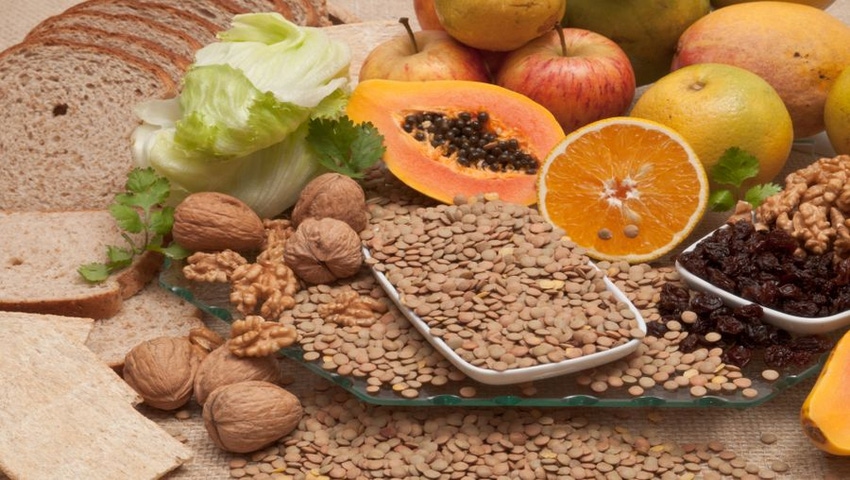Study Suggests High-Fiber Diets May Alleviate Food Allergies
We all know fiber is good for gut health; however, most Americans fall short of the recommended daily intake. But new research published in Cell Reports suggests consuming a high-fiber diet may alleviate food allergies, which have become a major public health issue due to its increasing incidence over the past 20 years, particularly in Western countries.

We all know fiber is good for gut health; however, most Americans fall short of the recommended daily intake. But new research published in Cell Reports suggests consuming a high-fiber diet may alleviate food allergies, which have become a major public health issue due to its increasing incidence over the past 20 years, particularly in Western countries.
“We felt that the increased incidence of food allergies in the past 10 years had to relate back to our diet and our own microbiome rather than a lack of exposure to environmental microbes—the so-called ‘Hygiene Hypothesis’," said Laurence Macia, co-senior author on the study with Charles Mackay, both immunologists at Monash University. “Most researchers in this field look at excess fat as the problem—we were one of the first looking specifically at fiber deficiency in the gut."
Gut bacteria are known to break down dietary fiber into their byproducts—primarily short-chain fatty acids. The researchers showed these fatty acids support the immune system by binding onto specific receptors on T regulatory cells—immune cells known to suppress the immune response. This binding promotes a cascade of events that regulate inflammation in the gut—something that can be out of flux during an allergic reaction to food.
For the study, mice that were bred to have an artificially-induced peanut allergy were fed a high-fiber diet to produce a healthy population of gut bacteria. The bacteria were then given to a group of “germ-free" mice that had no gut microbes of their own. Despite not having consumed any fiber themselves, this second group of mice was protected against allergy, showing a less severe response when exposed to peanuts. In short, their microbiota was “reshaped" by having this transplant, said Mackay, adding that these mice clearly evolved mechanisms for responding to fiber and its byproducts. “It’s almost an essential component of their nutritional health," he said.
“My theory is that the beneficial bacteria that predominate under consumption of fiber promotes the development of regulatory T cells, which ensures the bacteria have a healthy, anti-inflammatory system to thrive in," Macia said. “So it's a win-win for everybody."
This anti-inflammatory effect was even seen with an artificial administration of these fatty acid byproducts. When the researchers gave groups of allergy-induced mice a water supply that was enriched with short-chain fatty acids for three weeks prior to exposure to peanuts, the mice had a reduced allergic response, even in the absence of a “protected" microbiota.
A study published in the journal Pediatrics in February 2016 suggested women who eat more high-fiber foods, especially fruits and vegetables, during adolescence and young adulthood may have significantly lower breast cancer risk than those who eat less dietary fiber when young.
While current fiber intakes are low, new fiber fortifications and combinations can help bolster demands for all-in-one functional food and beverage products. Many nutrition authorities believe adding fiber ingredients to commonly consumed foods will help Americans bridge the fiber gap without adding significant calories to the diet. The “Slide Show: Fiber Formulation" provides formulators the important facts of formulating with fiber for successful products.
Looking for more on fiber ingredients? Visit the SupplySide & Vitafoods Global Storefronts to search ingredients, solutions, resources and more.
About the Author(s)
You May Also Like






.png?width=800&auto=webp&quality=80&disable=upscale)